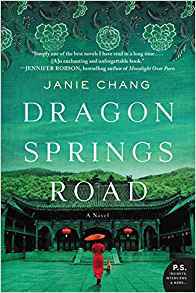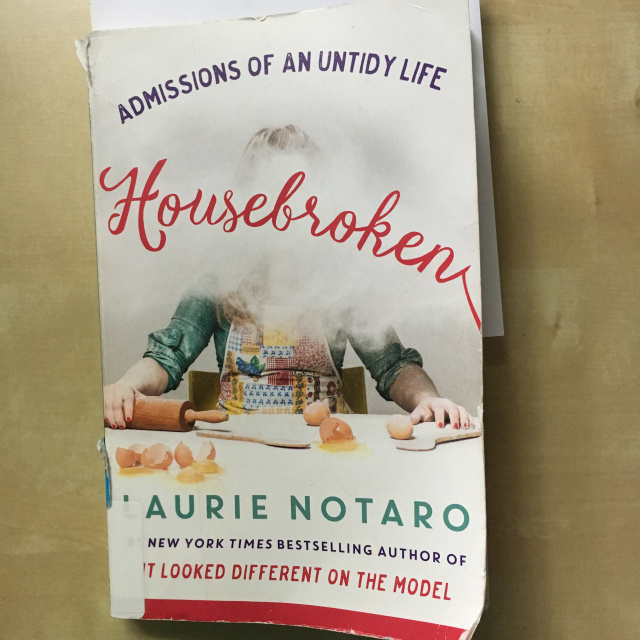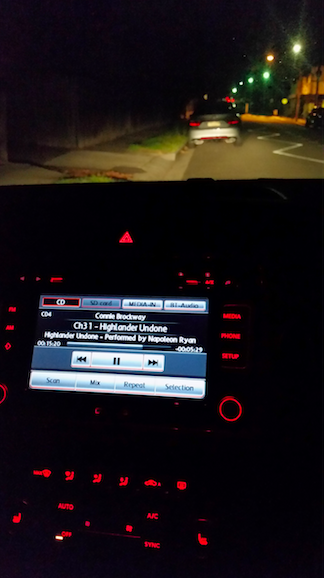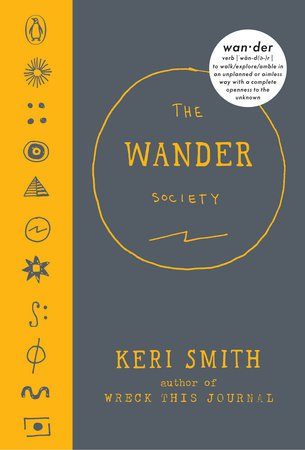This is a crucial twist in both Poe’s and Lovecraft’s stories – what is horrific is not that one is insane, but that one is not insane. – Eugene Thacker, Tentacles Longer Than Night, Vol. 3 Horror of Philosophy, p.4

Ray Milland in The Man With The X-Ray Eyes. Having been pushed to the edge of sanity by his ability to see through not just clothes and stone, but reality itself, he has ripped his eyes from his their sockets. The last line, dropped from the final print, was his agonizing declaration, “I can still see!”
While I’ve had my share of nightmares, including those that leave me waking up screaming, only once as a child of about eight or so did I ever have a Night Terror. Upon waking from a nightmare, I always know what is and is not real, that I was asleep and am now awake, that it was nothing more or less than my brain scaring me. That Night Terror, however . . . I awoke to see a large patch of blood on the ceiling of my room. It had dripped into a spreading pool on my bed. I screamed and screamed. It wouldn’t go away. My father came in to see what was wrong and he started to sit down in that spreading pool of blood! I told him not to sit down and when he asked me why, in that instant, the blood, the dark patch on the ceiling, the pool at the foot of my bed, that horrid plop of the drops – it was all gone. I tried to tell my father what had happened, but the impossible part was making clear to him that what I had seen and heard and felt wasn’t just a dream. It was, in fact, a horrible reality that may well have begun while I slept, but chased me into the waking world, leaving me terrified.
In the third and final volume of his series Horror of Philosophy, Eugene Thacker offers what is, in effect, a lengthy study of various literary themes in (mostly literary, although some Manga as well) horror fiction. Blurring the lines between literary criticism and philosophy – something that is really quite irritating, to be honest – Thacker’s major premise in this work, as in the previous two volumes, is that when human thought confronts its own limits, it encounters that which can neither be thought nor spoken, yet seems to demand to be named and spoken and described.
Except, really, what’s so horrifying at the thought of human beings limited in their abilities? We can’t run very fast. For our size we’re far weaker than other animals. Consciousness (the villain in Thomas Ligotti’s The Conspiracy Against The Human Race), when combined with our sociability and language, are the tools with which we’ve been equipped to survive in a world in which there are the eaters and the eaten. Other than the fear of being eaten by another creature (which, let’s face it, is pretty terrifying), what’s so awful about the reality that our world isn’t about anything, that we’re contingent, limited creatures, and that not just ourselves, but all that we know and all we will never know will disappear? It is what it is, after all.
Horror fiction, whether literary horror, genre horror, novels, or films, or manga all present us with a variety of questions, including important philosophical questions. When done well, we confront not just the literal (or figurative) horror on page or screen; we also confront that which frightens us most. The pay-off, of course, comes when that horror is defeated. Contemporary horror, particularly in film, offers the disquieting idea that, in fact, the horror is not overcome. Indeed, it seems to insist over and over that there is no escape from the horror that awaits us – whether that be death itself, a protracted dying, or a madness so thorough one’s very self becomes irretrievable.
Last week, I watched for the first time in 20 years the last movie that truly scared me. Event Horizon is about the attempted recovery of the first ship designed to travel faster than light. It had been lost, but has suddenly appeared in a decaying orbit above the planet Neptune. Along for the ride is the man who designed the ship, played by Sam Neill. When asked about the whole faster-than-light travel being impossible, Neill goes into a discussion about creating an artificial singularity which would, theoretically, bend space-time, allowing the ship to travel immense distances in an instant.* When they arrive on the ship, they find the crew missing, a haunting yet indecipherable log entry, and the occasional uncanny event, such as seeing dead loved ones, or those left behind on earth, or worse.
The horror of Event Horizon comes when that enigmatic log entry is deciphered. Apparently the cost of breaking the laws of physics is more than just the ability to move between the stars in an instant; it also propels you into a dimension of what Neill’s character calls “pure choas. Pure evil.” For me, this right here, is the most horrifying thought. Not that our Universe places a limit upon our abilities to travel long interstellar distances. It is, rather, the idea that there exists somewhere a place in which chaos rather than the ordered regularity of our Universe rules. A place where things like cause, effect, time, matter, energy have no meaning. While such a place is certainly possible, in theory, it is a place in which life would be impossible; the horror would be to find oneself trapped in such a place with no hope of escape.
The idea that the world and the Universe are quite indifferent to humanity and its concerns is neither new nor particularly frightening. It certainly carries with it, contrary to Thomas Ligotti’s insistence, no negative categorical imperative, that we human beings should end ourselves once and for all. How it’s possible to make the leap from the “is” of inhabiting a Universe where our very existence is an accident of circumstance to the “ought” that we should, therefore, end ourselves is quite impossible for me to figure out.
Whether it’s a Manga series about spirals (and this does sound quite terrifying), a Poe story about a maelstrom, one of Lovecraft’s many stories about indescribable horrors he goes on in some detail about, or a radio play about a darkness that seems to have teeth (and, yeah, this one would be pretty scary too), this idea that human beings encounter the unknowable, therefore confront our own limitations and thus have some kind of existential revelation about our own limitations and irrelevance is also at the heart of one of Stephen King’s better short stories from the 1980’s. Included in the collection Skeleton Crew, the story “The Jaunt” concerns itself with a family about to embark on a trip to Mars via teleportation. While the family waits, the father tells his son the stories he knows about how teleportation was invented. When asked why they have to be put to sleep before using the teleporter, the father offers the wild suggestion that, even though in the physical realm, teleportation happens in an instant, there might yet be something . . . in . . . that instant that is beyond our ability to comprehend. So, of course, the story ends with the family arriving on Mars. The son, however, didn’t take his sedative, remaining awake during the teleportation only to discover that “in” is far bigger and more horrible than it is possible to imagine.
Everything else is just a variation on this simple formula.
I find it fascinating to believe that our being a contingent, limited species is somehow a source of angst, whether metaphysical or existential. Oh, I’m sure it is for some people. By and large, however, the idea that the Universe really doesn’t care one way or another about us human beings seems to illicit shrugs more than screams of fright. To select obscure pieces (with the exception of Dante’s Inferno and various works by Poe and Lovecraft) that would open up the possibility of this paradoxical encounter between that which cannot be yet it, that which cannot be explained yet is described incessantly ignores the variety of topics laid bare by horror fiction in its sheer variety: fear of sex and becoming an adult; fear of the ambivalent relationships we continue to have with friends and family members who have died yet continue to be a part of our lives; fear of the possibility that science just can’t explain everything; fear of our annihilation, whether through natural or artificial cataclysm; various political fears. A fear of the unnameable “Nothing” that brings human thought both to an abrupt end yet causes it to work harder just doesn’t seem, well, very scary at all.
There are things that horror fiction and philosophy share. There are ways each can inform the other beyond an exploration of the boundary regions of human thought and experience. Most of all, both are simultaneously base yet vaunted exercises of the human imagination. It would seem to me a multi-volume work on the relationship between horror fiction and philosophy might explore these commonalities rather than propose a singular topic – das Nicht – as the core not only of horror, but of the horror of philosophy.
*Never mind that, by passing over the event horizon of the singularity, the ship and the people on it would be stripped of their materiality, reduced to elementary particles that would forever be trapped within the singularity. I know science fiction loves to travel faster than light, but, yeah, not so much.
Advertisements Share this:




